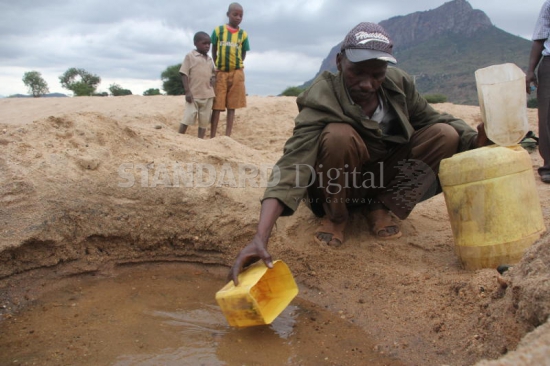×
The Standard e-Paper
Join Thousands Daily

Like poisonous snakes that use their lethal venom to subdue their prey for food and ward off enemies, the Akamba people of South Eastern Kenya have traditionally used poisoned arrows for food and self-defence.
But the slender sticks steeped with death are now being used as scare and killing tools for totally different reasons; illegal exploitation of the region’s white gold by people hungry for cheap money.